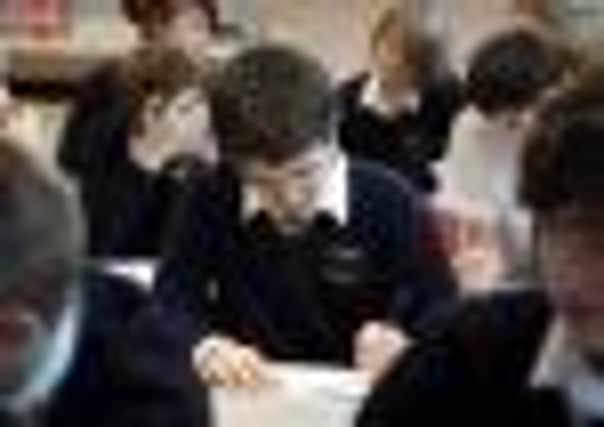Larry Flanagan: Take it as read, teaching literature is best left to teachers


Alexander Scott’s succinct summary of Scottish Education – “A telt ye; A telt ye” – seems apposite to the position of teachers of English as once again we have a decision being made by those outside the classroom about what should happen in the classroom. Engaging 15 and 16-year-olds in literary study of any kind is no mean task in our attention-altered technological world, which is why the professional judgment of those who know the pupils individually is so essential.
Whilst Hugh’s default tone of mocking irony is entertaining, within the web of words he weaves there is an unworthy caricature of English teachers, and the EIS, which deserves to be challenged.
Advertisement
Hide AdAdvertisement
Hide AdTo be clear – there is complete agreement on the importance of Scottish literature in the English curriculum. Indeed, as an English teacher for 33 years I can say quite honestly that I cannot remember a single year when Scottish texts and Scottish writers were not part of my teaching. Of the texts included in the provisional lists there are only three which I haven’t used before and English bookstores will already house class sets of titles such as Sunset Song, Bold Girls, The Cone Gatherers, Consider the Lilies, The Changeling, and Sailmaker.
As a former Higher English examiner and marker, I can readily attest, also, to the frequent use of these texts, already, alongside the poetry of Liz Lochhead, Norman MacCaig, Edwin Morgan and, more recently, Carol Ann Duffy. Far from disparaging the output of “native playwrights, poets and novelists”, teachers of English are keen to celebrate its richness.
The issue, therefore, is not the place of Scottish literature; nor, indeed, is it the notion that study of Scottish literature should be mandatory, which we would agree to. The source of the disagreement is that the Higher English examination, and that of the new National 5, is to be distorted in order that a mandatory context question on one Scottish text from a prescribed list can be introduced at the expense of one of the broader essay questions. English teachers across the board are exercised by this intrusion because its effect will be to narrow the range of texts being studied.
Hugh mocks the expressed concern about “teaching to the test” as something that has always been so – and there is an element of truth to that. However, in the context of Curriculum for Excellence Scottish education is making a determined effort to redress the current imbalance between the need to pass tests and the importance of developing deeper understanding and appreciation. The current proposal would be a step backwards as it seeks to use the exam to dictate the curriculum in what is a clumsy and counter-productive fashion.
• Larry Flanagan is general secretary for the EIS